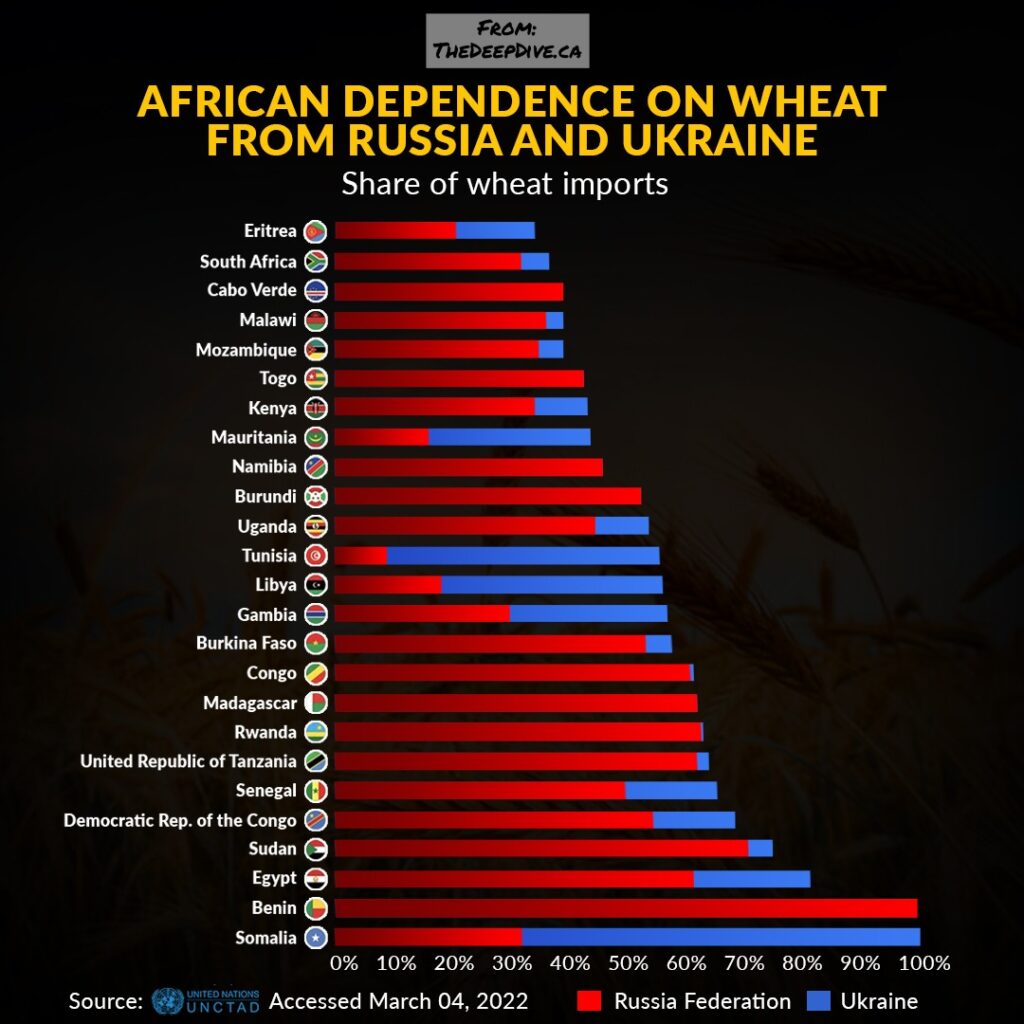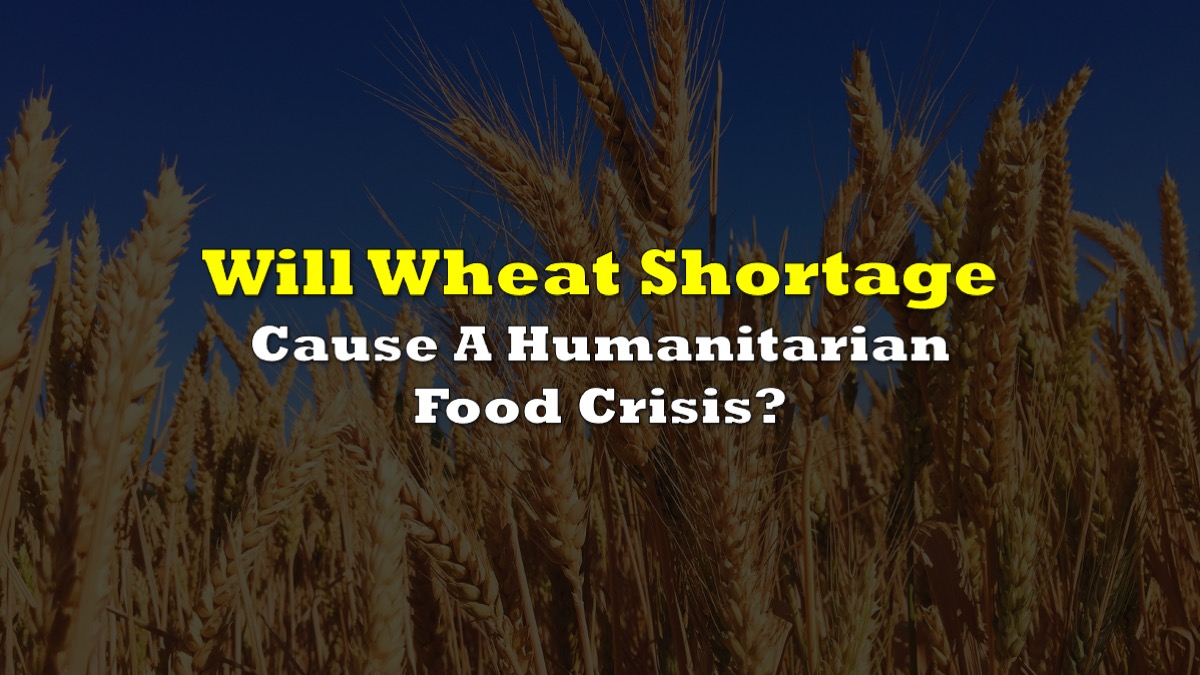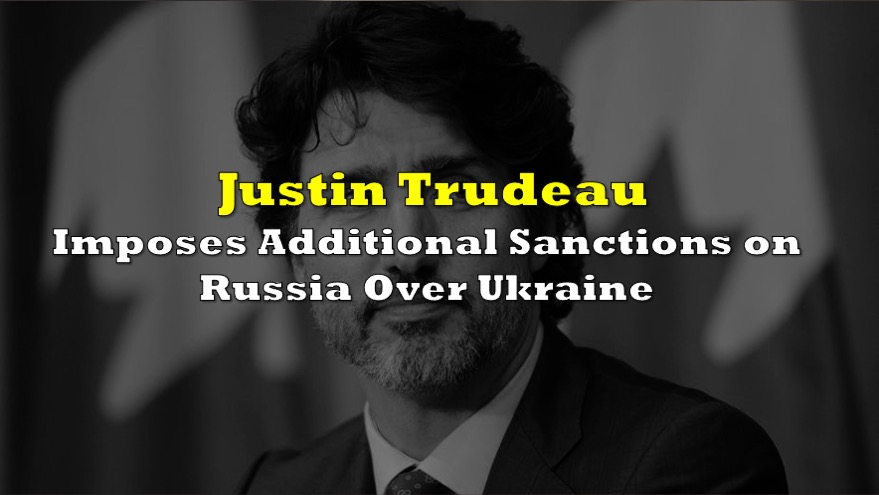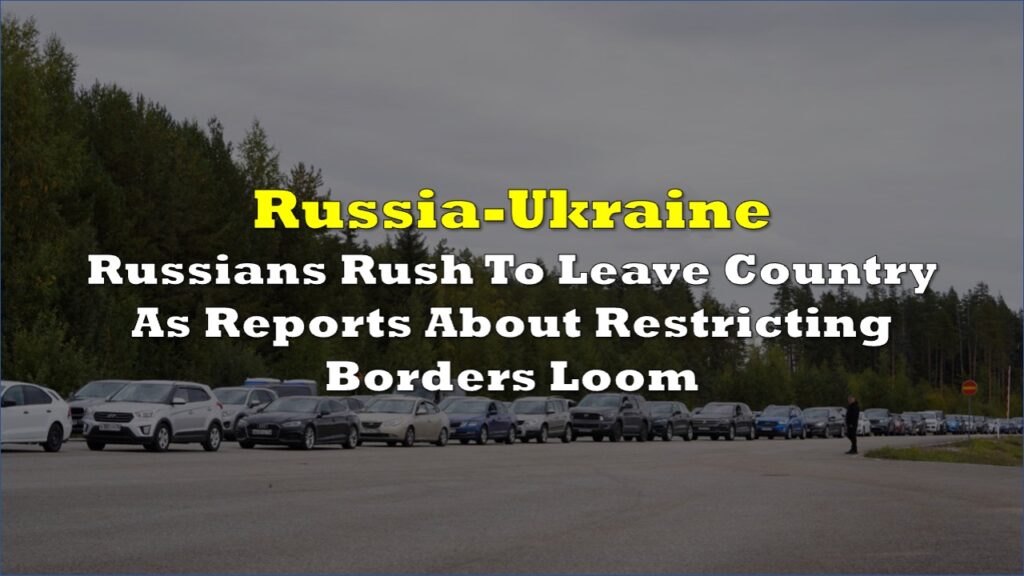A food crisis looms on the horizon as Russia continues its invasion of Ukraine.
The global impact of the conflict in Europe was immediately felt when the prices of oil and gas surged, affecting markets around the world. But threats mount as the war continues to cause critical disruptions in the global supply chain, including in the exports of staples like wheat, sunflower oil, and corn.
The bullets and bombs in #Ukraine could take the global hunger crisis to catastrophic levels. Supply chains and food prices will be dramatically impacted. @WFP's operational costs alone will rise by $60-75 million per month.
— David Beasley (@WFPChief) March 8, 2022
Simply put, higher costs = less food and more hunger. pic.twitter.com/XBHmPFKpAb
Referred to as “Europe’s breadbasket,” Ukraine and Southwestern Russia supply 30% of global wheat exports. A report from the Organization for Economic Co-operation and Development (OECD) states that a “complete cessation” in the two nations’ exports “would result in serious shortages in many emerging-market and developing economies.”
United Nations Secretary-General António Guterres, in a statement released on March 14, said that 45 African and least developed countries import at least a third of their wheat from the two nations. 18 of those nations import at least 50 percent.

Keep in mind that most of these countries are already economically weakened by the pandemic and drought. “In a word, developing countries are getting pummelled. They face a cascade of crises — beyond the Ukraine war, we cannot forget COVID and the impacts of climate change — in particular, drought,” Guterres added.
Agricultural markets reacted very early into Russia’s invasion of Ukraine, causing a surge in prices. The price for a ton of wheat soared to a record-breaking €400, whereas it was €280 before the war, and €150 in the spring of 2020. The World Bank also reported that wheat futures prices have surged 60% since the start of the conflict.
These prices are unsustainable for most importers. And the impact doesn’t stop in North Africa, as Indonesia is the world’s second-largest importer of Ukraine’s wheat. Lebanon, Pakistan, Turkey, and more countries in Central Asia and sub-Saharan Africa also depend on Ukraine for the staple.
According to estimates from the UN Food and Agriculture Organization (FAO) an additional 8-13 million people worldwide face undernourishment if food exports from Ukraine and Russia are stopped permanently.
Ukraine and Russia also supply 80% of sunflower oil globally, and a fifth of the total exports of corn or maize. A shortage in corn, which is used as animal feed, could also impact meat prices.
Information for this briefing was found via the OECD, the UN, Twitter and the companies mentioned. The author has no securities or affiliations related to this organization. Not a recommendation to buy or sell. Always do additional research and consult a professional before purchasing a security. The author holds no licenses.









